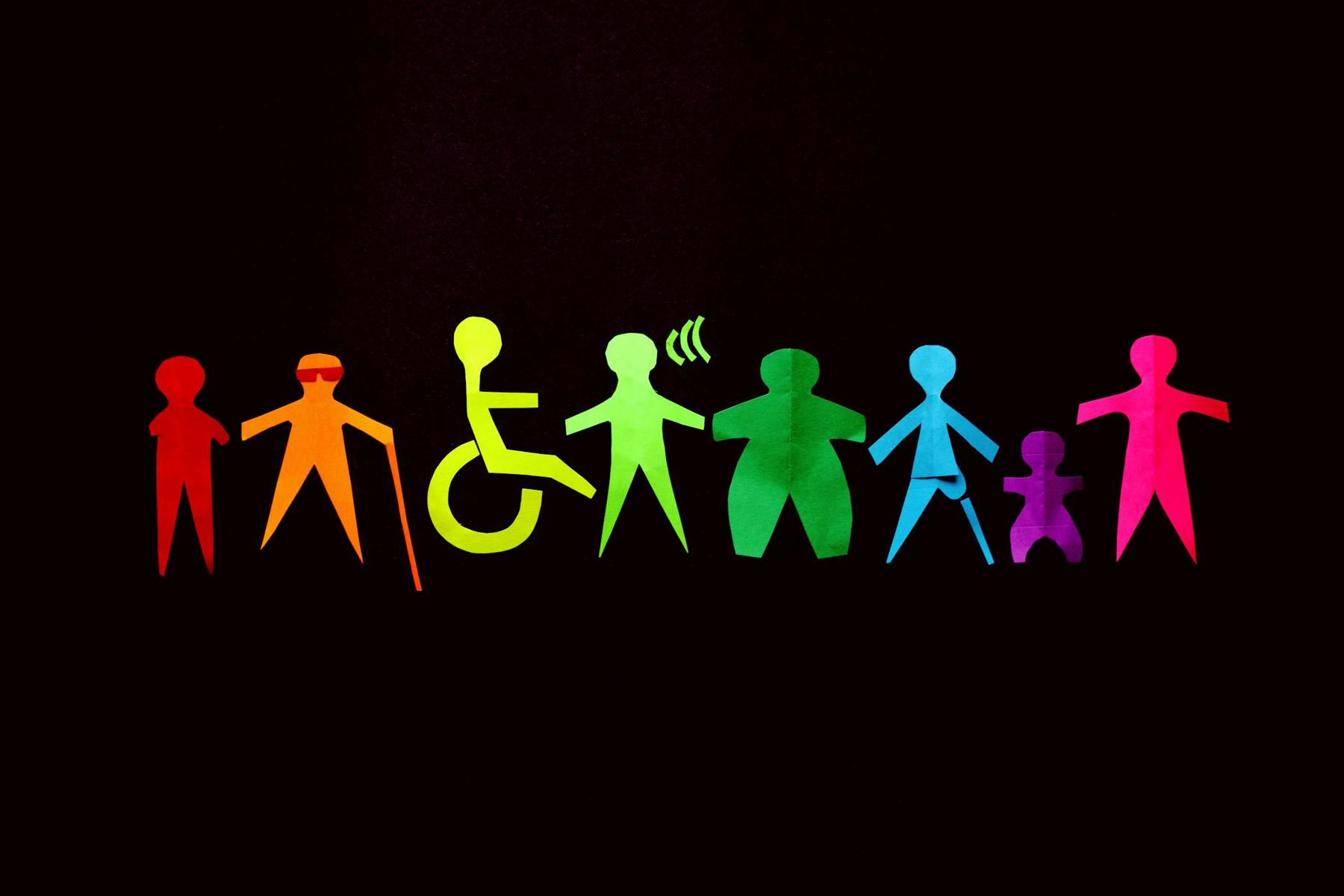The disability support landscape in Australia is experiencing unprecedented transformation, and nowhere is this more evident than in regional communities like Cairns. As we navigate through 2025, families and individuals with disabilities are witnessing remarkable shifts in how support services are delivered, funded, and accessed. These changes bring both exciting opportunities and complex challenges that demand our attention and understanding.
For the 28,000 individuals with disabilities in Cairns and the 4,000 NDIS-registered residents who call this vibrant tropical city home, these evolving trends represent more than statistical developments—they signify real changes to daily life, independence, and community participation. The convergence of technological innovation, funding reforms, and person-centred care approaches is reshaping what it means to receive quality disability support in 2025.
What Major NDIS Funding Changes Are Affecting Disability Support in 2025?
The National Disability Insurance Scheme has implemented significant funding reforms that directly impact how disability support services operate across Australia. The 2025-26 NDIS Pricing Arrangements and Price Limits have introduced a 3.95% increase in price limits for disability support workers, aligning with Fair Work Commission adjustments and superannuation guarantees.
This pricing adjustment represents more than just numbers—it’s a critical step toward addressing workforce retention challenges whilst ensuring services remain accessible to participants. The reforms have also expanded early childhood support eligibility from ages 7 to 9, enabling earlier interventions for developmental delays that can make profound differences in a child’s life trajectory.
Perhaps most significantly, NDIS participants are transitioning to quarterly funding disbursements starting from May 2025. This structured approach allows unused funds to roll over between periods, empowering participants to align their expenditure with evolving priorities while reducing the risk of early plan exhaustion. For families managing complex care needs, this flexibility provides breathing room to make thoughtful decisions about support services.
Impact on Cairns Providers
Local disability support providers are adapting their billing systems to accommodate these staggered payments, ensuring seamless continuity for clients requiring high-intensity daily personal activities. The changes require more sophisticated financial planning but ultimately offer participants greater control over their support funding.
How Is artificial intelligence Transforming Disability Support Services?
The integration of artificial intelligence into disability support represents one of the most exciting developments in 2025. We’re witnessing a fundamental shift from standalone assistive technology applications to comprehensive AI assistants that understand and respond to individual needs in real-time.
Modern AI platforms like Envision’s “ally” demonstrate remarkable capabilities, enabling users with vision impairments to query environmental information and receive auditory responses within two seconds. This technology transforms everyday activities—from reading restaurant menus to navigating unfamiliar spaces—into manageable, independent experiences.
The CSIRO’s framework for AI-enabled assistive technology emphasises voice banking solutions that preserve linguistic identity for individuals with degenerative conditions. This personalised approach ensures that as conditions progress, people retain their unique communication style and connection to their identity.
Smart Home Integration
Cairns-based providers are increasingly integrating Internet of Things (IoT) devices with NDIS-funded home modifications. Participants can now control lighting, climate, and security systems through voice commands or neuroadaptive interfaces, creating truly accessible living environments. Wearable devices incorporating fall detection, vital sign monitoring, and GPS tracking enhance safety for participants living independently, with data streams feeding into centralised caregiver dashboards.
| AI Technology Application | Primary Benefit | Implementation Timeline |
|---|---|---|
| Environmental interpretation AI | Real-time visual assistance | Currently available |
| Voice banking systems | Preserved communication identity | Expanding through 2025 |
| Smart home IoT integration | Enhanced independent living | Rapid deployment |
| Wearable health monitoring | Proactive safety management | Mainstream adoption |
| Predictive care algorithms | Preventive intervention | Pilot programs active |
What Workforce Developments Are Shaping Disability Support Quality?
The disability support sector faces an estimated 83,000-worker shortfall nationally, making workforce development a critical priority for 2025. Queensland’s Disability Service Plan 2025–2028 has responded with targeted upskilling initiatives, including micro-credentials in trauma-informed care and cross-cultural communication—particularly relevant for Cairns’ diverse demographic landscape.
The $64.3 million NDIS Jobs and Market Fund is accelerating regional workforce growth, with special focus on First Nations communities. This investment recognises that quality disability support requires workers who understand local contexts, cultural sensitivities, and community connections.
Specialised Training Standards
High-Intensity Support Skills (HISS) training protocols now govern complex care delivery, including enteral feeding, tracheostomy management, and epilepsy response. Providers must demonstrate competency through nurse-supervised assessments, with comprehensive incident reporting systems tracking protocol adherence. This standardisation ensures that participants receiving complex care can trust in consistent, high-quality support regardless of which worker provides their service.
Training programs now incorporate simulation-based learning, with some providers reporting significant reductions in medication errors through hands-on practice in controlled environments. This approach builds confidence and competence simultaneously, creating a workforce better equipped to handle the diverse needs of people with disabilities.
How Is Telehealth Revolutionising Access to Support Services?
The expansion of telehealth services represents a game-changing development for disability support accessibility. University of Melbourne research indicates that 63% of NDIS participants now utilise telehealth for various therapies, with 13% expressing preference for virtual consultations over in-person visits.
This shift is particularly significant for regional areas like Cairns, where specialist access has historically been limited. AI-driven platforms are now delivering customised therapy exercises based on real-time participant feedback, achieving comparable outcomes to clinic-based interventions in 78% of cases.
Hybrid Service Models
Cairns providers are reporting improved engagement rates using hybrid models that combine video sessions with community-based follow-ups. This approach maintains the personal connection that’s crucial for effective disability support whilst expanding access to specialised services that might otherwise require lengthy travel or waiting periods.
The integration of digital therapeutic platforms allows for continuous monitoring and adjustment of support strategies, creating more responsive and personalised care experiences. Participants can access support when they need it most, rather than waiting for scheduled appointments.
What Role Does Community Integration Play in Future Disability Support?
The shift toward person-centred care and community empowerment marks a fundamental change in how disability support services operate. The $39.8 million federal investment in peer-led initiatives has funded programs like Cairns’ “Living Out Loud,” which connects LGBTQIA+ participants with mentors sharing intersectional disability experiences.
Early data shows a 41% increase in self-advocacy skills among participants in peer support programs, demonstrating the power of lived experience in building confidence and capability. This approach recognises that effective support extends beyond practical assistance to include emotional connection, shared understanding, and mutual empowerment.
Local Implementation Success
Cairns Regional Council’s Disability Access and Inclusion Plan (DAIP) 2024–2026 exemplifies community-focused support, prioritising accessible tourism infrastructure upgrades and sensory-friendly event spaces. The $2.1 million allocation for footpath tactile indicators and hearing loops in civic buildings demonstrates commitment to universal design principles that benefit everyone.
Collaborations between NDIS providers and the Cairns Hospital Network have achieved a 22% reduction in emergency department presentations through shared care plans for participants with complex comorbidities. This integrated approach shows how community-wide cooperation can improve outcomes whilst reducing system pressures.
How Are Digital Platforms Streamlining Support Coordination?
The digital transformation of disability support services is eliminating many traditional barriers to access and coordination. The NDIS Commission’s upcoming unified platform will consolidate 27 disparate provider databases into a single portal with quality rating filters and real-time pricing comparisons.
Machine learning algorithms analysing monthly claims are improving system integrity by flagging irregular billing patterns with 89% accuracy. This technology protects the scheme’s sustainability whilst ensuring funds reach participants who need them most.
Participant-Controlled Data Sharing
New “data trust” models enable participants to granularly control which providers access their therapy progress metrics, with 62% choosing to share information with community groups rather than insurers. This shift toward participant sovereignty in data management reflects broader trends toward personal empowerment and choice in disability support services.
Advanced encryption protocols protect biometric data collected via wearables, ensuring that technological advancement doesn’t compromise privacy or personal autonomy.
Looking Ahead: Sustainable and Ethical Support Systems
The future of disability support in 2025 is characterised by three interlocking priorities: financial sustainability through optimised pricing models, technological empowerment via ethical AI implementations, and participant sovereignty in care decision-making. These developments create opportunities for more personalised, responsive, and effective support services.
For regional communities like Cairns, success depends on balancing technological innovation with human-centred service delivery. The emerging challenges—including rural workforce shortages and algorithmic bias—require continued collaboration between policymakers, technologists, and people with lived experience of disability.
As Queensland’s Disability Reform Framework progresses, providers who anticipate and adapt to these trends will lead the sector toward more equitable, future-ready support ecosystems. The focus remains firmly on empowering individuals to live independently, participate fully in their communities, and achieve their personal goals with dignity and choice.
What changes to NDIS funding should participants expect in 2025?
Participants will transition to quarterly funding disbursements starting May 2025, allowing unused funds to roll over between periods. Price limits for disability support workers have increased by 3.95%, and early childhood support eligibility has expanded to age 9.
How reliable is AI-powered assistive technology for daily support needs?
Current AI assistive technology platforms achieve comparable outcomes to traditional support methods in 78% of cases, with response times as fast as two seconds for environmental interpretation. However, these tools require rigorous validation and should complement, not replace, human support.
Will telehealth services remain available long-term for NDIS participants?
Yes, telehealth flexibilities have been extended through September 2025, with 63% of NDIS participants now using remote services. The hybrid model combining virtual and in-person support is becoming the preferred approach for many providers.
How can families access peer support programs in regional areas like Cairns?
The $39.8 million federal investment has funded 69 peer-led initiatives nationally, including specific programs in Cairns. Contact your local NDIS office or disability support provider for information about available peer support options in your area.
What training standards must disability support workers meet in 2025?
Workers providing complex care must complete High-Intensity Support Skills (HISS) training with nurse-supervised assessments. All workers must maintain competency through blockchain-verified training modules, with regular updates reflecting best practice developments.



